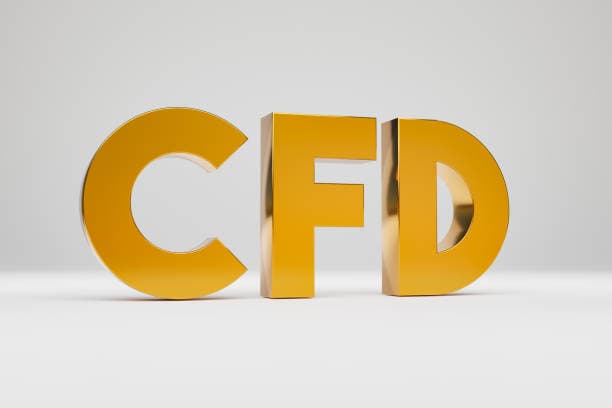Diversification is the spice of life, especially when it comes to investing. It’s not just about spreading your eggs across different baskets; it’s about choosing the right baskets in the first place. Traders often find themselves at the crossroads of opportunity, pondering over the vast expanse of global markets. The allure of diversification is strong, promising a smoother ride through the volatile terrains of financial landscapes. So, let’s dive into the art of spreading your investments across the globe without the formalities and with a touch of casual insight.
The Power of Global Markets in a Trader’s Toolkit
Traders are the navigators of the financial seas, and global markets are their vast oceans. The world of finance is interconnected, with each market influencing the other in a complex dance of supply and demand. By tapping into global markets, traders gain access to a plethora of opportunities that domestic markets might not offer. This is where the concept of diversification comes into play, allowing traders to mitigate risk and potentially enhance returns.
Expanding Horizons: The Benefits of Global Diversification
Diversification across global markets isn’t just about chasing higher returns. It’s a strategic move that can protect your portfolio from market-specific risks. When you invest in a single market, you’re exposed to that market’s economic, political, and regulatory risks. But by expanding your reach to global markets, you can hedge against these uncertainties. If one market is down, another might be up, balancing out your portfolio’s performance.
Strategic Asset Allocation: The Key to Diversification
Asset allocation is the cornerstone of any diversified portfolio. It involves deciding how much to invest in each asset class—stocks, bonds, commodities, real estate, and so on. The goal is to create a balanced mix that aligns with your risk tolerance and investment goals. When it comes to global markets, asset allocation takes on a new dimension. You’re not just choosing between different asset classes; you’re also choosing between different countries and regions. This adds another layer of complexity but also another layer of potential returns.
Understanding Cultural and Economic Dynamics
Each global market has its own unique cultural and economic dynamics. What works in one market might not work in another. For instance, a product that’s popular in the U.S. might not have the same appeal in China. As a trader, understanding these nuances is crucial. It’s not just about translating financial reports; it’s about understanding the underlying cultural shifts that drive consumer behavior and market trends.
Navigating Currency Risks in Global Trading
When you trade in global markets (In Arabic, it is called “الاسواق العالمية“), you’re also trading in different currencies. This introduces currency risk, which can significantly impact your returns. For example, if the U.S. dollar strengthens against the Euro, a European investment held in dollars could lose value. To manage this risk, traders often use hedging strategies or diversify their currency exposure. It’s all about being proactive and adapting to the ever-changing currency landscapes.
Leveraging Technology for Global Market Access
In today’s digital age, technology has made it easier than ever to access global markets. Online trading platforms and apps allow traders to monitor and trade in real-time, across different time zones and markets. This unprecedented access has democratized global trading, allowing even small investors to participate in the global financial ecosystem. However, with great power comes great responsibility. Traders must be vigilant about the reliability and security of the technology they use.
Regulatory Compliance: A Necessity in Global Trading
Global markets are governed by a patchwork of regulations that can vary greatly from one country to another. As a trader (In Arabic, it is called “المتداول“), it’s important to stay informed about these regulations to avoid legal pitfalls. Non-compliance can lead to hefty fines or even the loss of trading privileges. It’s not just about understanding the rules; it’s about staying ahead of the curve as regulations evolve and change.
The Role of Research in Global Diversification
Research is the lifeblood of any successful trading strategy. In the context of global markets, it becomes even more critical. Traders need to stay informed about global economic indicators, political developments, and market trends. This requires a commitment to continuous learning and the ability to parse through vast amounts of information to identify actionable insights.
Building a Resilient Global Portfolio
A resilient global portfolio is one that can withstand market shocks and continue to perform over time. This requires a careful balance of assets, a keen understanding of global market dynamics, and a willingness to adapt to changing conditions. It’s not about chasing the latest trend; it’s about building a foundation that can weather the storms of the financial world.
The Importance of Patience and Discipline
Trading in global markets can be exhilarating, but it also requires a great deal of patience and discipline. Markets don’t always move in the direction you expect, and there will be times when your investments underperform. The key is to stay the course and not let short-term fluctuations derail your long-term strategy. Patience and discipline are the pillars that support a successful trading career.
Conclusion: Embracing the Global Trading Journey
The world of global markets is vast and complex, offering both challenges and opportunities for traders. By embracing diversification, understanding cultural and economic dynamics, managing currency risks, leveraging technology, complying with regulations, conducting thorough research, building resilience, and maintaining patience and discipline, traders can navigate this exciting landscape and potentially reap the rewards. The global trading journey is not for the faint of heart, but for those who are willing to learn, adapt, and persevere, the rewards can be well worth the effort.

